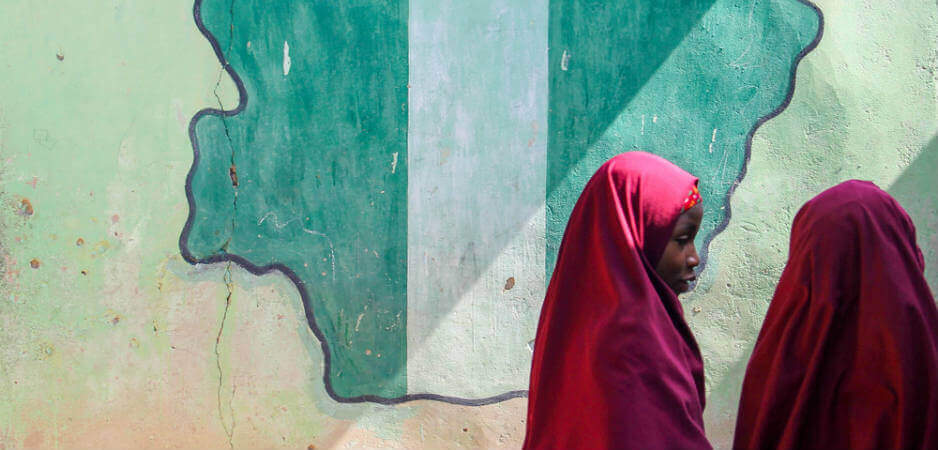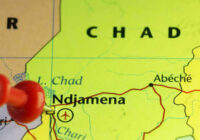The continued abduction of schoolgirls by Boko Haram across Nigeria raises questions about both the government’s competence and its willingness to deal with the rebel group.
On February 19, nearly four years after the abduction of schoolgirls by Boko Haram in Chibok, Borno State, which sparked global outrage, the rebel group struck again. This time, the target was the Government Girls Science Technical College in Dapchi, Yobe State. The government took its time to issue a precise figure, which had the number of missing girls at 110. Of the 276 girls abducted in April 2014 in Chibok, 154 have either been released or escaped, but 112 are still missing.
Dapchi had all but come to a standstill this past month. Thankfully, most of the girls were returned by Boko Haram on March 21; five did not survive the kidnapping, while Leah Sharibu, a 15-year-old girl who refused to convert to Islam, was still being held by the jihadist group.
The question on the lips of many Nigerians is whether the return of the girls had been staged. Fueling these suspicions are reports like the one by Sergeant David Bako, who claims that the government paid 80 million naira ($222,400) to execute the capture and release of the girls in a bid to reinstate the faith of the people in its competence. Not surprisingly, the military has severed all ties with Bako, claiming he isn’t registered with the Nigerian army.
All along, Nigeria’s minister of information, Lai Mohammed, claimed little was known about the missing Dapchi girls. To him, this effrontery by Boko Haram was an attempt to embarrass President Muhammadu Buhari. As Nigerians question whether Boko Haram is a terrorist organization or a political tool, government authorities continue to give out aliquots of information about the group, creating confusion by changing facts and figures.
In May 2017, the governor of Ekiti State, Ayodele Fayose, accused the government of using the release of some of the Chibok girls to divert attention from Buhari’s health crisis. Meanwhile, the population keeps grappling with truths and lies about the cycle of death and resurrection of Boko Haram’s leader, Abubakar Shekau. These inconsistencies further fuel suspicions of a conspiracy theory behind the abductions and Boko Haram’s long-term strategy. The religious background of the group is strongly emphasized, but is it more than simply a terrorist organization?
One great worry is that Boko Haram militants keep targeting schools to get their hands on more girls, who are invariably raped and given as wives to the fighters. In the eventuality of their return, as was the case with the rescued Chibok girls, these girls would have been transformed from erstwhile innocent children to young mothers. Some might have even fallen in love with the fathers of their children. Others want nothing to do with their unwanted offspring. Upon their return, they face mistrust of their loved ones, who fear they might have been indoctrinated by the the group and are now carriers of the Boko Haram legacy. Whatever the case, their lives will never be the same again.
The fact that these abductions happen in poor areas far away from the worries of the country’s elites leaves those affected by Boko Haram’s violence with no recourse to justice and further abuse.
Yet amnesty is being advocated for Boko Haram by some prominent Nigerians, including the governor of Kaduna State, Nasir el-Rufai, who declared that a carrot and stick approach must be used, as opposed to brute force. President Buhari, who declared amnesty for the insurgents to be out of the question during his presidential campaign, has promised to pardon repentant members of the group. As of today, 30,000 have died as a result of Boko Haram violence since 2011, according to one estimate; the governor of Borno State, Kashim Shettina, put that figure at 100,000 in February 2017, with at least 2 million others displaced by the insurgency. By any standards, these statistics are grim enough to call for intensified efforts on the part of the country’s government.
The subject of discourse also borders on how long Nigerians will keep living in fear of their children, especially girls, being abducted while they engage in something as simple as going to school. Western education is anathema to Boko Haram, whose name translates as “Western education is forbidden.” But Nigeria is not an Islamic state, and the government is failing to protect its people from the infringements on freedom to life and to basic education that are being trampled upon by non-state actors.
This is not the Nigeria of our dreams, and if the country is to continue as a whole, Boko Haram has to be eradicated, once and for all.
The views expressed in this article are the author’s own and do not necessarily reflect Fair Observer’s editorial policy.
Photo Credit:y bmszealand / Shutterstock.com
Support Fair Observer
We rely on your support for our independence, diversity and quality.
For more than 10 years, Fair Observer has been free, fair and independent. No billionaire owns us, no advertisers control us. We are a reader-supported nonprofit. Unlike many other publications, we keep our content free for readers regardless of where they live or whether they can afford to pay. We have no paywalls and no ads.
In the post-truth era of fake news, echo chambers and filter bubbles, we publish a plurality of perspectives from around the world. Anyone can publish with us, but everyone goes through a rigorous editorial process. So, you get fact-checked, well-reasoned content instead of noise.
We publish 3,000+ voices from 90+ countries. We also conduct education and training programs
on subjects ranging from digital media and journalism to writing and critical thinking. This
doesn’t come cheap. Servers, editors, trainers and web developers cost
money.
Please consider supporting us on a regular basis as a recurring donor or a
sustaining member.
Will you support FO’s journalism?
We rely on your support for our independence, diversity and quality.









Commenting Guidelines
Please read our commenting guidelines before commenting.
1. Be Respectful: Please be polite to the author. Avoid hostility. The whole point of Fair Observer is openness to different perspectives from perspectives from around the world.
2. Comment Thoughtfully: Please be relevant and constructive. We do not allow personal attacks, disinformation or trolling. We will remove hate speech or incitement.
3. Contribute Usefully: Add something of value — a point of view, an argument, a personal experience or a relevant link if you are citing statistics and key facts.
Please agree to the guidelines before proceeding.